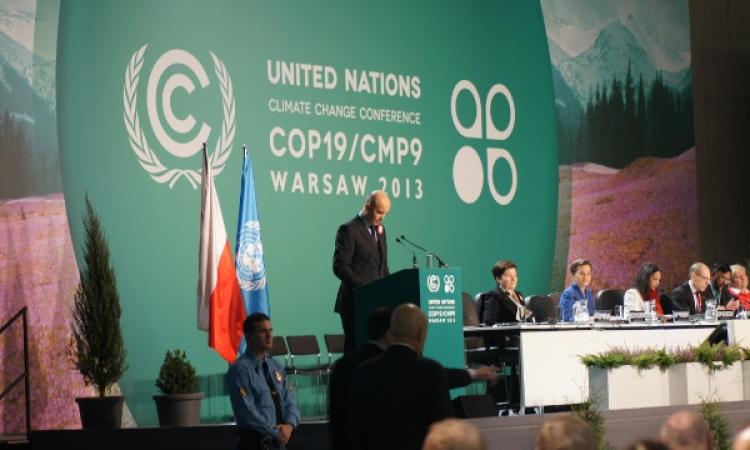
Money deals mar climate talks in Warsaw
The two week annual conference of the United Nations Framework Convention on Climate Change in Poland's capital Warsaw ended on a note of dispute between the developed and the developing countries. An agreement on 'loss and damage' to compensate and insure developing countries from the impact of climate change-related natural events was signed in the conference. However, it was marred by a disagreement over who will fund the compensation. Developing countries wanted that public money from the developed countries should fund it while the latter was keen on private investments funding this compensation.
Environment Ministry creates special department for the Himalayas
The Ministry of Environment and Forests has created a division that will deal with policies related only to the mountaneous region within the country's boundry. The Department was announced in 2011 by the then Environment Minister Jairam Ramesh but it has become functional only now after the disaster caused by the flash floods in Uttarakhand. The Division will operate from G. B. Pant Institute of Himalayan Environment & Development in Uttarakhand, Almora which is an autonomous Institute under the Ministry. The budget for the new unit in the year 2013-14 is Rs 1.5 crore.
The Ganga's human rights
The National Human Rights Commission (NHRC) has taken suo moto cognisance of pollution in the river Ganga and issued notices to the Central Environment Ministry and the Uttar Pradesh Government's Chief Secretary. The Commission has asked both the government bodies to list within four weeks the steps taken to clean the polluted river. According to the NHRC, right to safe and clean environment is one of the most important human rights. The NHRC has dealt with other environment issues in the past like a suo moto cognisance of sand mining in Kerala and is publishing a set of nine books on human rights and environment.
15 birds critically endangered and three threatened
The International Union for Conservation of Nature (IUCN) has listed 15 Indian birds- both migratory and native- as critically endangered while three have moved from the 'least concern' category to 'near threatened'. According to the IUCN, the three birds- River Lapwing, River Tern and the Long Tailed Duck- face threat from human pressure on the riverine ecosystem and the growing number of dams. Decline of wetlands, grasslands and forests, which are bird habitats, due to development pressures has led to this state observed wildlife NGOs.
Kerala to act against water theft
The Kerala Water Authority has set up a six member Water Theft Squad that will conduct door-to-door checks on meter reading and tampering, type of water connections and additional connections. It will also conduct checks at construction sites, flats, hospitals, hotels, shops, institutions and factories to check whether they are using water above the permissible limits. The Squad, which was dormant for the past two years, has been revivied in the wake of daily complaints from city residents about the unavailability of water due to excessive water use by high-rise buildings and business establishments.
This is a weekly roundup of policy matters from November 24-30. Also read last week's news updates.